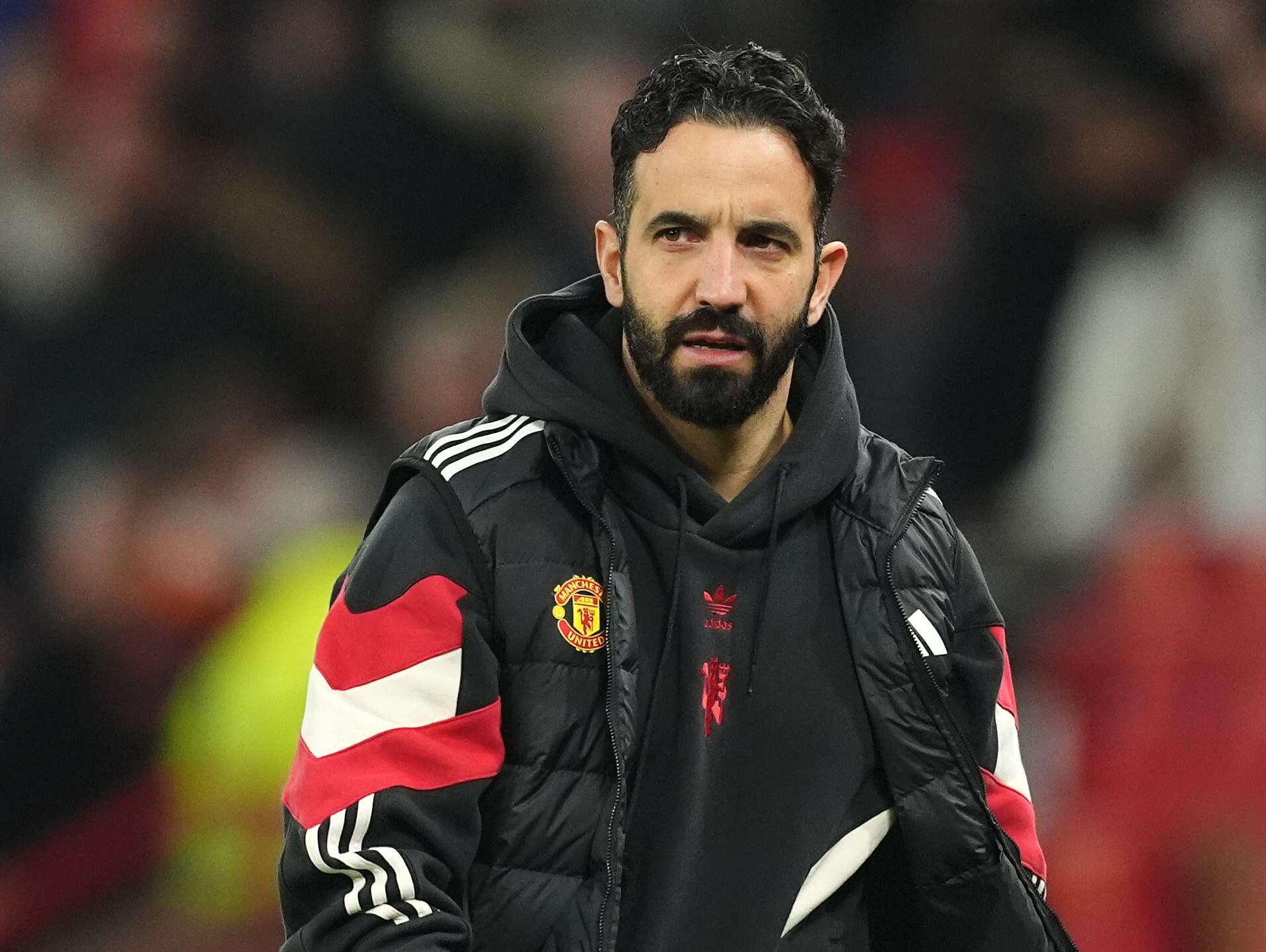The craziest football conspiracy theories
Tinfoil hats at the ready as FFT reveals the game’s most radical claims – from Messi’s coded passing patterns to Lasagne-gate...
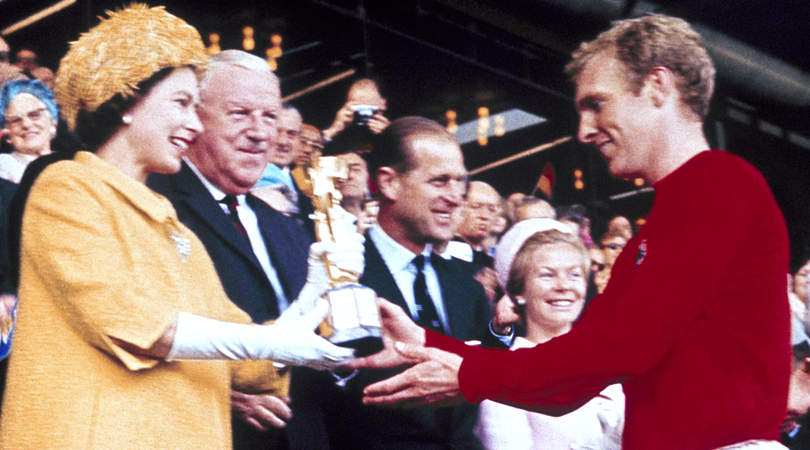
Football is an industry as much as a sport – does that make it immune to corruption?
We'd like to think not, here at FourFourTwo. There are plenty of rational explanations for weird things going on in the sport and most of them can be put down to something normal.
But not on these occasions…
The 1966 and 1974 World Cups were fixed
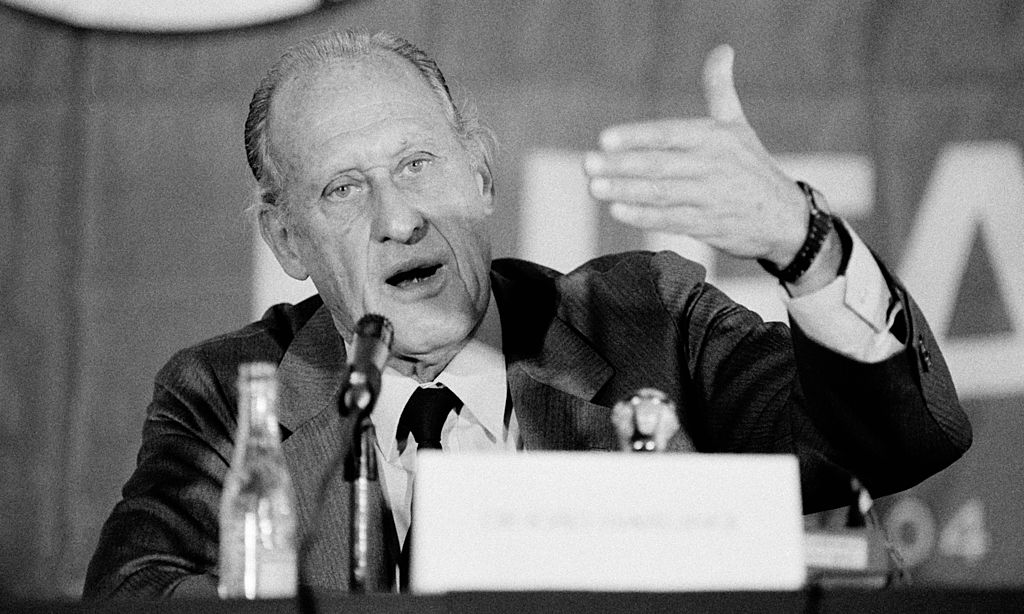
Any window-licking conspiracist can come up with a theory – check out Hyde Park’s Speakers’ Corner next time you’re in London to see what we mean – but when a former FIFA president claims the 1966 and 1974 World Cups were fixed, you should probably take notice.
“It was planned for the host countries to win,” parped Joao Havelange in 2008. Who did the Brazilian think were most hard done by? Er, Brazil, obviously. “We were the best in the world, with the same teams that won the World Cup in 1962 in Chile and 1970 in Mexico.”
Havelange’s proof? British or German referees – picked by his FIFA predecessor, the Englishman Sir Stanley Rous – who allowed roughhouse tactics to disrupt jogo bonito. And that’s it. Not quite a smoking gun, Joao.
Tapped-up European Cup referee robs the rams
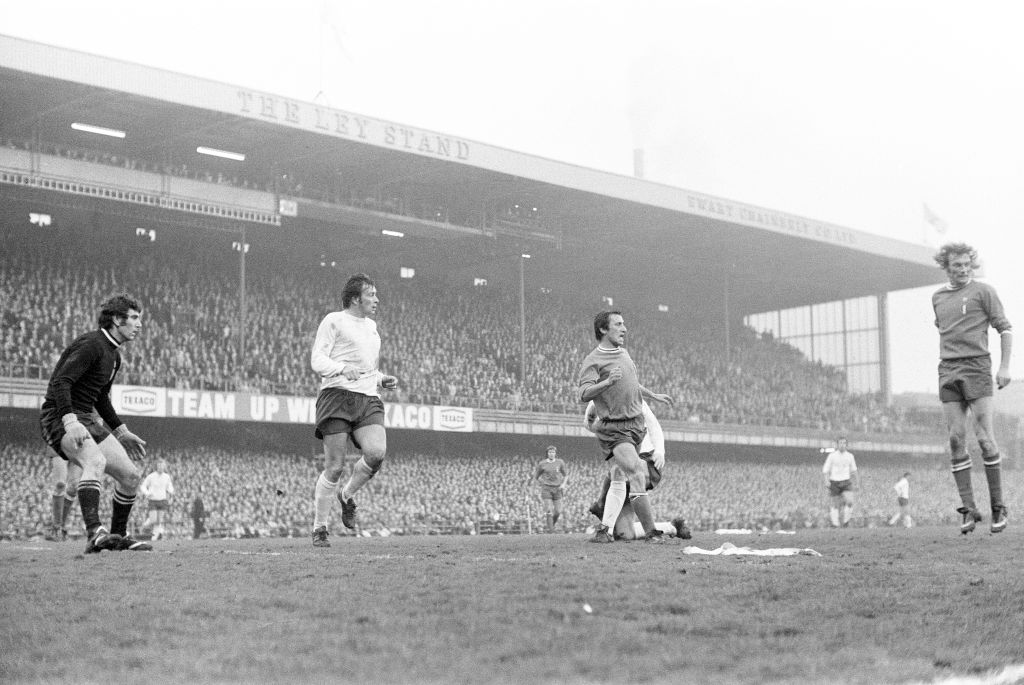
As Brian Clough’s Derby travelled to Turin for their 1973 European Cup semi-final, Welsh Juventus legend John Charles warned Old Big ’Ead and his assistant Peter Taylor that the Old Lady’s German midfielder Helmut Haller “had the ear” of referee Gerhard Schulenberg.
Get FourFourTwo Newsletter
The best features, fun and footballing quizzes, straight to your inbox every week.
So, when Taylor saw the pint-sized Haller accompanying his compatriot into the official’s dressing room at half-time, he hurried after them. “Haller jabbed me in the ribs and while I was gasping for air, some heavies grabbed hold of me,” Taylor later huffed. “I heard John shouting to me to hold on to my passport. I’ve never been so scared in my life.”
The Rams lost 3-1 and Archie Gemmill and Roy McFarland were booked, ruling them out of the return leg, thanks to what The Sun described as “some of the most amazing refereeing ever seen”. Clough was convinced. “No cheating bastards will I talk to,” he told the Italian press at full-time. Their grasp of Clough’s finest Anglo-Saxon, much like Schulenberg’s objectivity, was never determined.
Peru lie down for Argentine grain
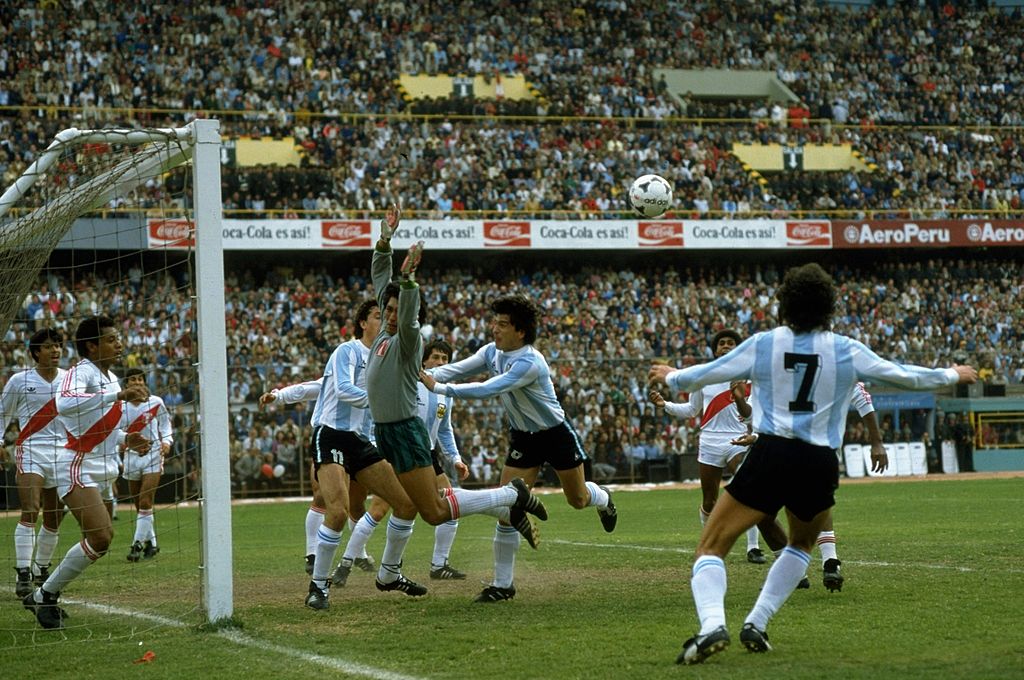
When hosts Argentina beat already-eliminated Peru by two goals more than the required four to reach the 1978 World Cup Final at Brazil’s expense, it didn’t take long for cries of foul play to hang around the eventual winners. Journalist and lead foul-crier Carlos Ares was threatened with death or exile, and – sensibly, given the military junta’s lax attitude to human rights – moved to Spain.
Before the Peru game, dictator Jorge Videla’s oppressive mob, believing a home World Cup triumph would cleanse the country’s toxic image, offered the Peruvian government 35,000 tonnes of grain, $50m of assets to be unfrozen and the chance for a few of their South American cousins’ political prisoners “to disappear” in return for the necessary tennis score victory.
In 2012, former Peruvian senator Genaro Ledesma finally admitted the fix in open court. “With what I know now,” sighed Leopoldo Luque, Argentina’s two-goal striker in the game. “I can’t say I’m proud of my victory.”
Denmark and Sweden conspire at Euro 2004
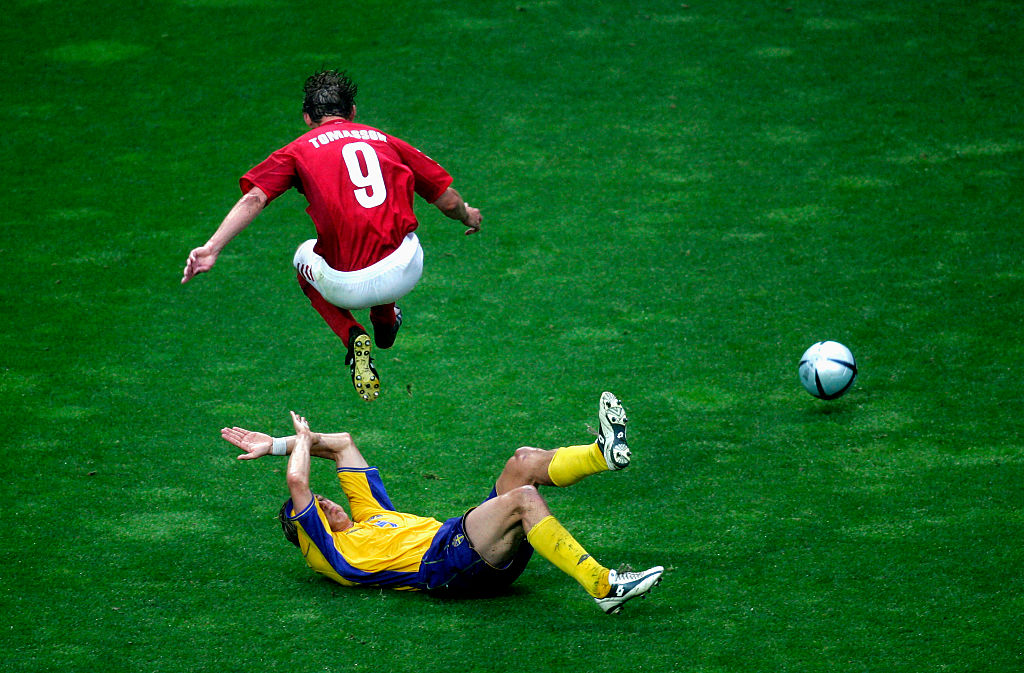
“Italians might like to think in a Machiavellian way,” said flat-batted Sweden coach Lars Lagerback as his side prepared to face Denmark in Euro 2004’s final group games, knowing 2-2 would be the only result to ensure both Scandinavians progressed at the Azzurri’s expense, “but it would not be possible to play for a 2-2 draw. That’s a very unusual result.”
Denmark manager Morten Olsen was just as incredulous. “That’s ridiculous,” spat the bespectacled boss. “We’re honest people.”
The final score? Of course it was. “2-2!” screamed the front page of one Swedish newspaper. “Congratulations, Italy, you tipped correctly.”
After the game, decided by Mattias Jonson’s 89th-minute equaliser for Sweden, reports of constant dialogue between the opposing players began to surface, but Danish defender Thomas Helveg maintains there was no fix. “It was a real game,” he later trilled. “I wanted to take out the Swedes at all costs – there are centuries of rivalry between us.” Don’t let history get in the way of a good conspiracy, Thomas.
The Franco regime threatened Barcelona
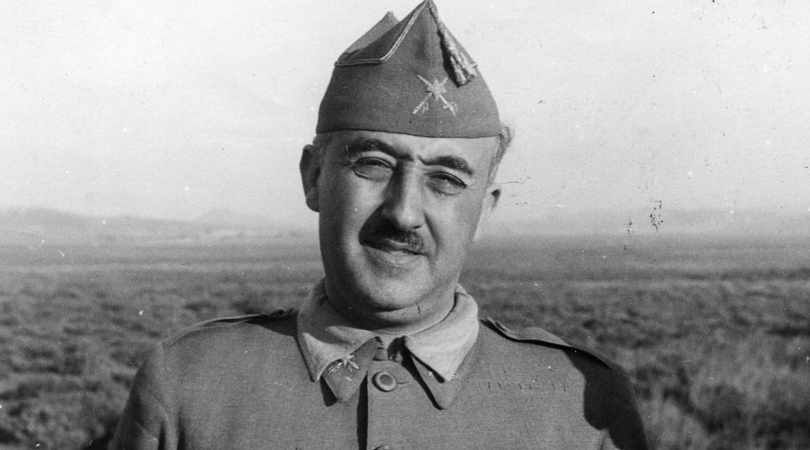
In strolling to a 3-0 Copa del Generalisimo win over Real Madrid in 1943’s semi-final first-leg, Barcelona were odds-on to meet Athletic Bilbao in the final at their fierce rivals’ expense. But trouble was brewing.
Keen to stamp his authority on the domestic cup that bore his name, dictator General Franco fined the Catalans for the whistling of Real Madrid and over-exuberant celebrations. The story goes that just before the return leg in Madrid, Jose Finat – Franco’s Director General of National Security – dropped by Barcelona’s dressing room for a quick chat.
Sporting a pair of revolvers on his belt, Finat is said to have ‘reminded’ the team: “You’re only playing thanks to the generosity of the regime, who have pardoned your lack of patriotism in the first leg.” Real Madrid won 11-1. It’s still a Clasico record, and probably always will be.
Highfield Road’s 15 minutes of shame
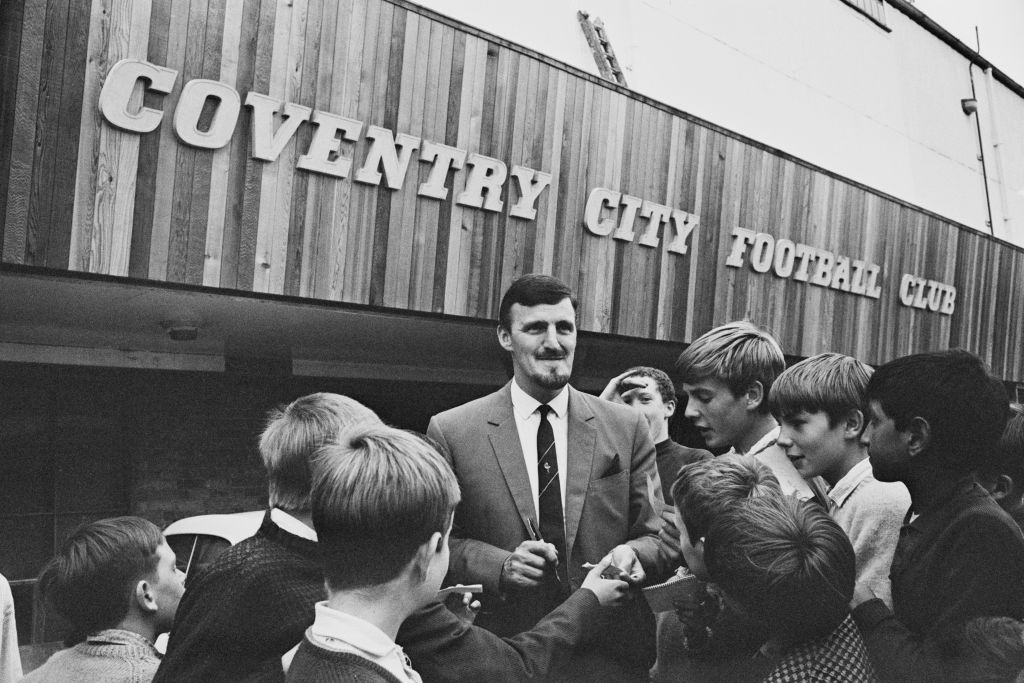
While the Sex Pistols filled May 1977 by plotting the overthrow of one “fascist regime”, Sunderland fans directed their ire not towards Queen Elizabeth but at Coventry City chairman Jimmy Hill.
With the Black Cats, Sky Blues and Bristol City fighting to avoid the last relegation spot on the final day of the season, the latter two met at Highfield Road in a match that was delayed by 15 minutes because of crowd congestion.
As soon as the final whistle blew on Sunderland’s 2-0 defeat to Everton, meaning Coventry and Bristol City’s 2-2 draw would see both teams survive, the situation was immediately announced over the tannoy. Cue 22 relieved players indulging in a quarter of an hour’s keep-ball.
Sunderland fans have long since smelled Hill’s hand on the tiller (or tannoy button), the extravagantly chinned one needing a police escort out of Craven Cottage when the Black Cats met Fulham in 2008. Thank God for that traffic, eh?
Ronaldo plays at Nike’s behest
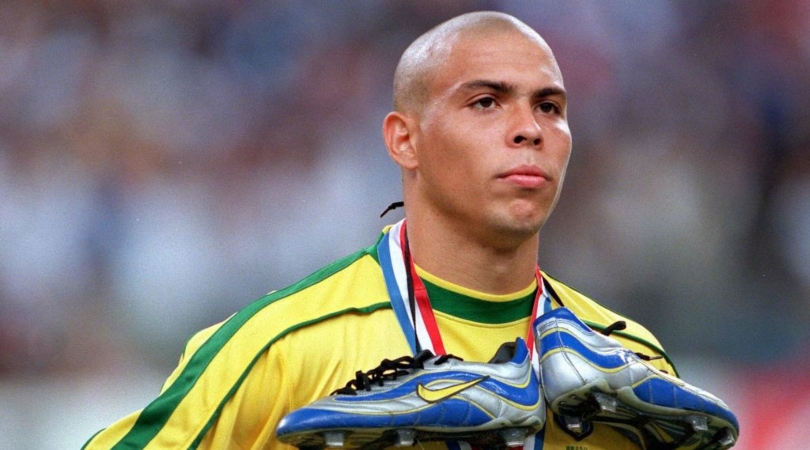
Waving around a piece of paper with the veracity of Neville Chamberlain proclaiming “peace for our time” 50 years earlier, BBC commentator John Motson reflected the maelstrom that surrounded Brazil striker Ronaldo’s absence, then re-emergence, from the teamsheet for the 1998 World Cup Final at the Stade de France.
Looking and playing like a ghost, Ronaldo’s pallid performance soon raised suspicion that Brazil sponsors Nike had forced O Fenomeno to appear against his will, after the striker had suffered an unexplained fit in the morning. There was even a fudged parliamentary inquiry set up to investigate the sportswear giants’ close relationship with football.
All involved deny the story, bar one: Brazilian striker Edmundo. “Nike’s people were there 24 hours a day,” huffed the Animal, coincidentally dropped when Ronaldo re-emerged to play. “That’s all I can say.”
Paul the Octopus’s fake death
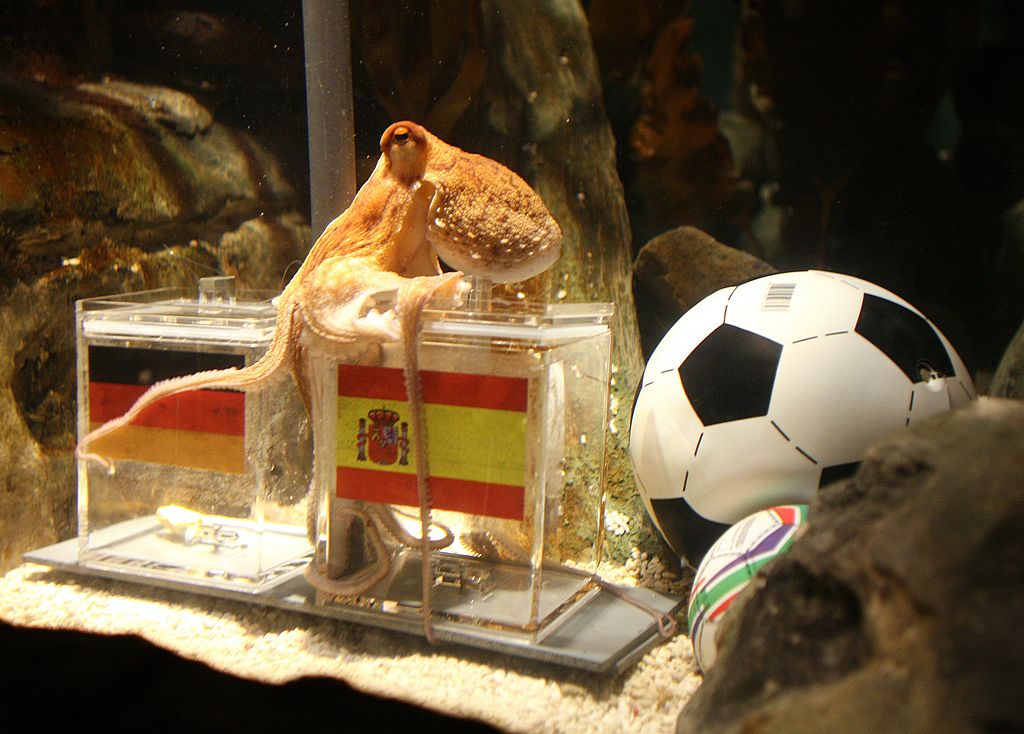
JFK, Elvis, Paul the Octopus: you’ve got to be seriously famous to have a conspiracy theory surrounding your death. When the psychic cephalopod snuffed it at the ripe old age of two in October 2010, Chinese film-maker Jiang Xiao claimed to be “60 to 70 per cent sure” Paul had died halfway through the World Cup.
“They’ve been covering up his death and fooling us for a long time,” she huffed. “Octopuses all look the same. It’s impossible to tell the difference.”
Jiang, whose film Who Killed Paul the Octopus? just happened to be due for release, thought it was “kind of strange” the aquarium had offered their support for her movie a matter of weeks before the mollusc’s death. “The movie is about unveiling the inside story behind the octopus miracle,” she huffed, “so they felt nervous.” Of course they did.
Messi and Iniesta send coded messages to Syrian militia
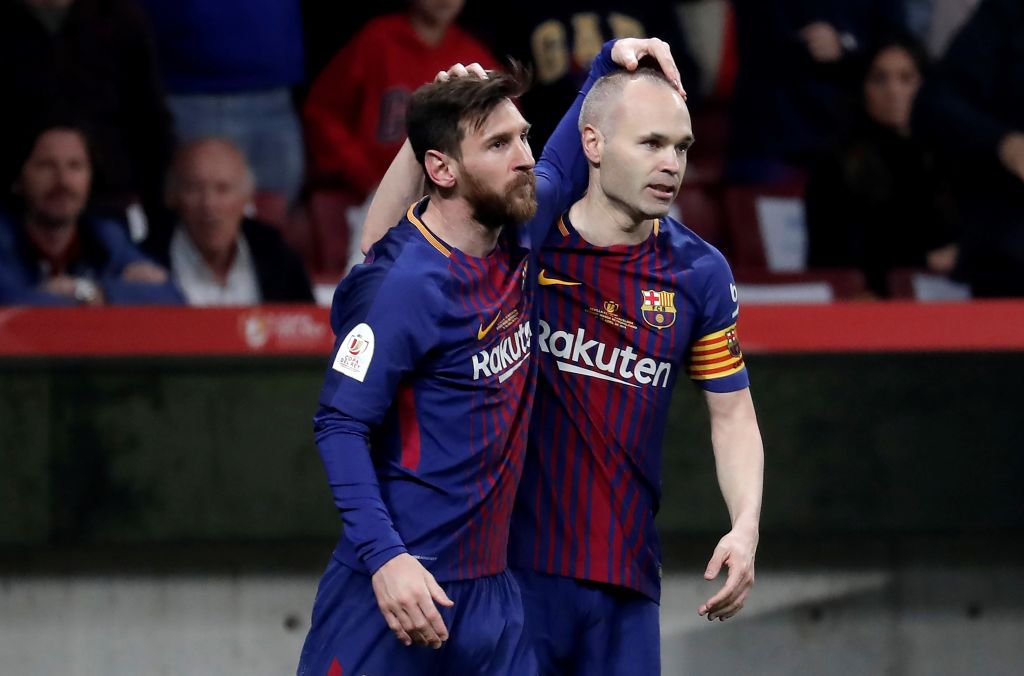
You might imagine Lionel Messi becoming Barcelona’s all-time record goalscorer was the most astonishing thing to come out of the 2012 clasico with Real Madrid. You’d be wrong. It was during this game, claimed Syrian state television, that Leo and friends sent coded messages to rebels in the war-torn middle-eastern country, revealing the best way to smuggle guns into Syria via their pretty passing patterns.
“Here we see the first stage where arms are loaded from Lebanon,” began the report on Al Dunya TV, complete with graphics showing a map of Syria and a passing move between Messi, Andres Iniesta and Pedro. A bizarre piece of propaganda by President Bashar Assad or the most surreal hoax imaginable? What do you think? (Yeah, us too.)
FIFA betray Maradona
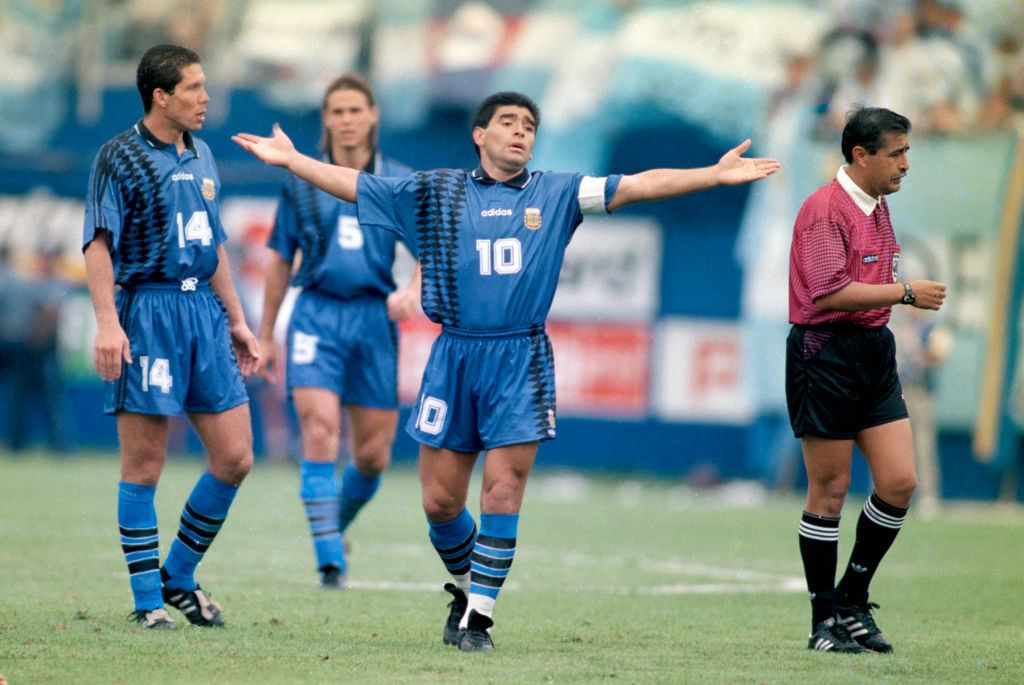
Long cursed with an overactive thyroid, Diego Maradona was struggling to shift a few pounds before the 1994 World Cup. Some would claim an overactive imagination, too, especially after the Argentine tested positive for ephedrine halfway through the tournament.
El Diego claimed FIFA had promised to turn a blind eye to his attempts at weight loss, because they needed his marketability to sell tickets. When they remembered it was a World Cup and so would probably manage all right, they “persecuted” poor Diego. Scoundrels.
‘Cruyff, Champagne and Naked Girls’
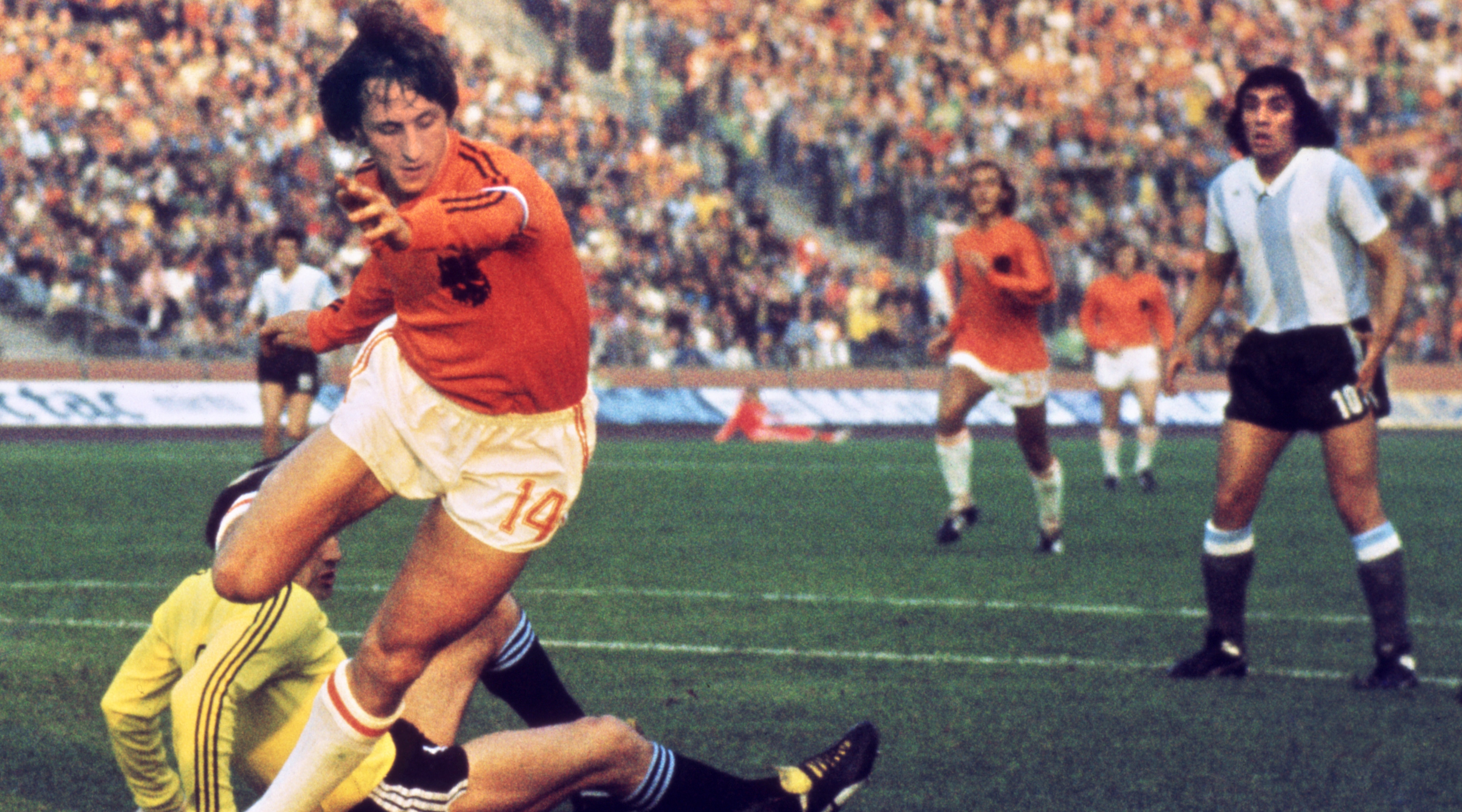
Few deny there was a naked pool party comprising the majority of the Dutch squad that had just reached the 1974 World Cup Final and a bevy of German beauties. Speak to the wife of any player and they’ll say it happened, “but my husband wasn’t there”.
The conspiracy lies in the timing. A good four days passed between the party and German tabloid Bild cannily running the front-page story the day before the final against the hosts, under the sensational headline ‘Cruyff, champagne and naked girls’.
Most accept that captain Johan Cruyff wasn’t there, but his attempts to placate his furious wife lasted long into the night. The day after the story was printed, he played “like a dishrag” according to his brother Hennie. The Netherlands lost the final 2-1.
“We changed a bit that night,” midfielder Arie Haan later admitted. “Everybody was looking at you. Then came the pressure and stress – the women were on the phone.”
Meanwhile, the rumour that the Frauleins in attendance were escorts hired by the paper in the first place still refuses to die down…
Bobby Moore’s bracelet and Colombia’s secret police
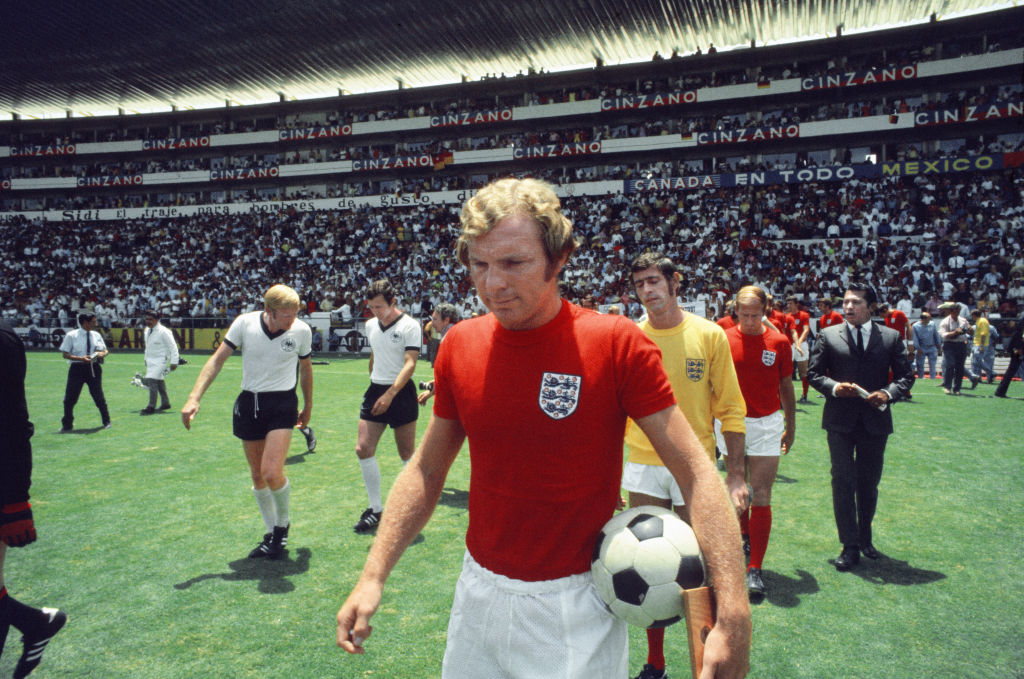
It was the scandal that rocked England’s defence of the World Cup in 1970, but the one question nobody can answer is: why? Why was captain Bobby Moore accused of stealing an emerald bracelet from a hotel jewellers in Colombia?
The West Ham defender was placed under house arrest for four days until his release was secured by pressure from prime minister Harold Wilson and a lack of any, you know, evidence.
Two years later, leaked documents suggested it was a deliberate sting by the Colombian secret service, potentially to extract money or as part of a South American plot to destabilise the defending champions’ most important player. Others claim Moore was taking the fall for one of his team-mates who took the Bogota bracelet for a practical joke
The 1958 World Cup never happened
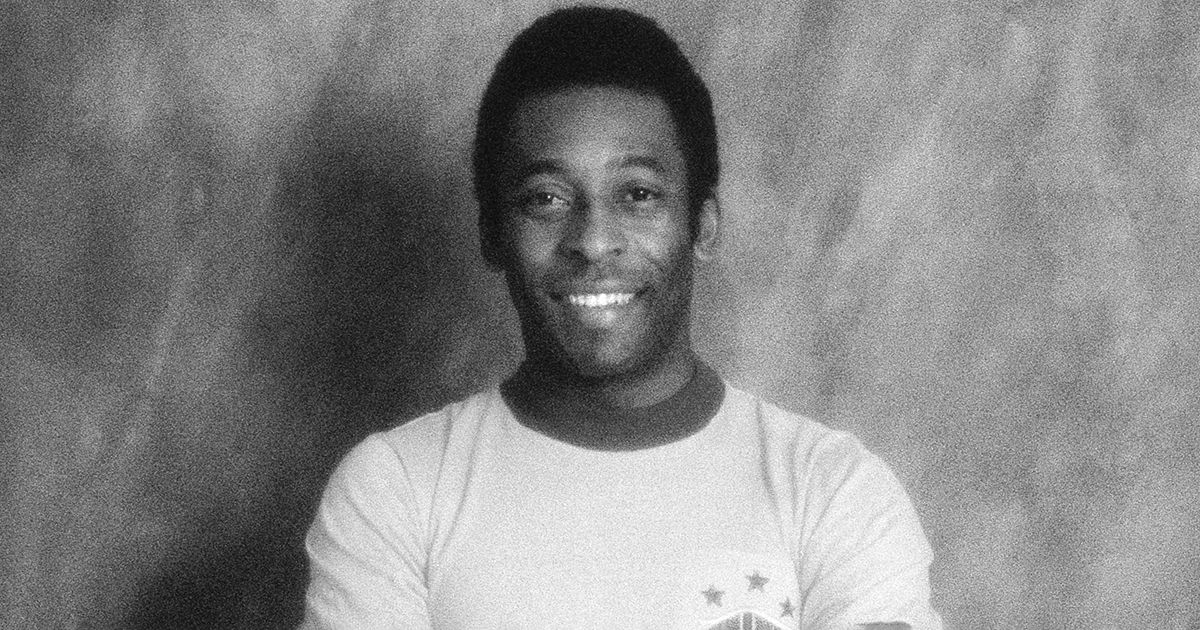
“They say there was no World Cup in 1958,” says a solemn Kurre Hamrin, whose solo effort in the semi-final against West Germany ensured hosts Sweden would meet Brazil in the showpiece final. “I was there for it, so I can’t understand how they can say that.”
The legendary Swede was talking to the makers of Konspiration 58, a 2002 film in which historian Bror Jacques de Waern claims the 1958 World Cup took place in a Los Angeles recording studio, not Scandinavia, as part of a CIA experiment to test the power of televised propaganda.
His proof? Suspicious buildings in the background of games, doctored photos of boots and player shadows that couldn’t have been produced by Swedish summertime sun. Supposedly there was even a mysterious group targeting Hamrin and UEFA president Lennart Johansson, who was told he “didn’t have long to live” for believing in the lie.
But as the credits rolled, a statement revealed that director Johan Lofstedt’s film was an Orwellian hoax, an attempt to explore the pitfalls of history revisionism, especially Holocaust denial, and everyone had been in on it. Not that that’s stopped a few idiots on the internet continuing to peddle De Waern’s made-up theories as if they were fact, though.
Mussolini makes Monti an offer he can’t refuse
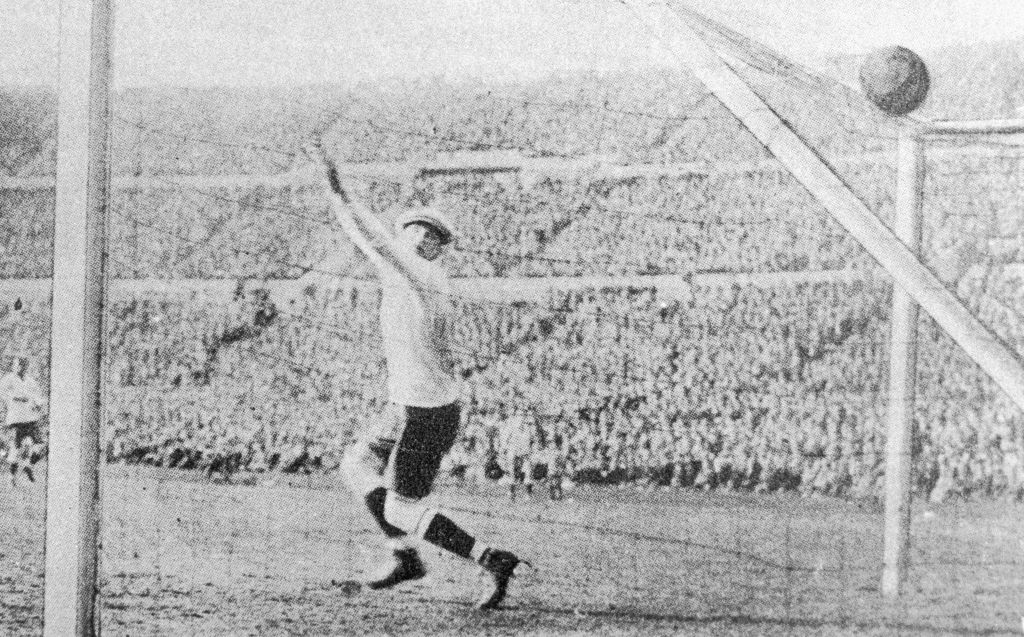
A few decades before Marlon Brando delivered one of cinema’s most famous lines in The Godfather, Italian dictator Benito Mussolini was busy ‘persuading’ Argentina midfielder Luis Monti to come and play for Italy.
Two secret agents travelled to the 1930 World Cup to act as Il Duce’s personal recruiter of the top talents on show for the tournament Mussolini was determined to host next time around. When Monti – nicknamed doble ancho, or ‘double wide’, for his generous physique – scored la Albiceleste’s first goal, they had their man. Whatever the cost.
Death threats were issued through his Italian mother, and legend has it Monti was in tears in the dressing room at half-time of the final against hosts Uruguay. Argentina were winning 2-1 and eventually lost 4-2. Monti made the move later that year and went on to win the 1934 World Cup as an nationalised Italian. Whether he woke up one day with a horse’s head on his pillow, with Mussolini’s fingerprints all over it, was never proven.
Iranian government order team to ‘take it easy’
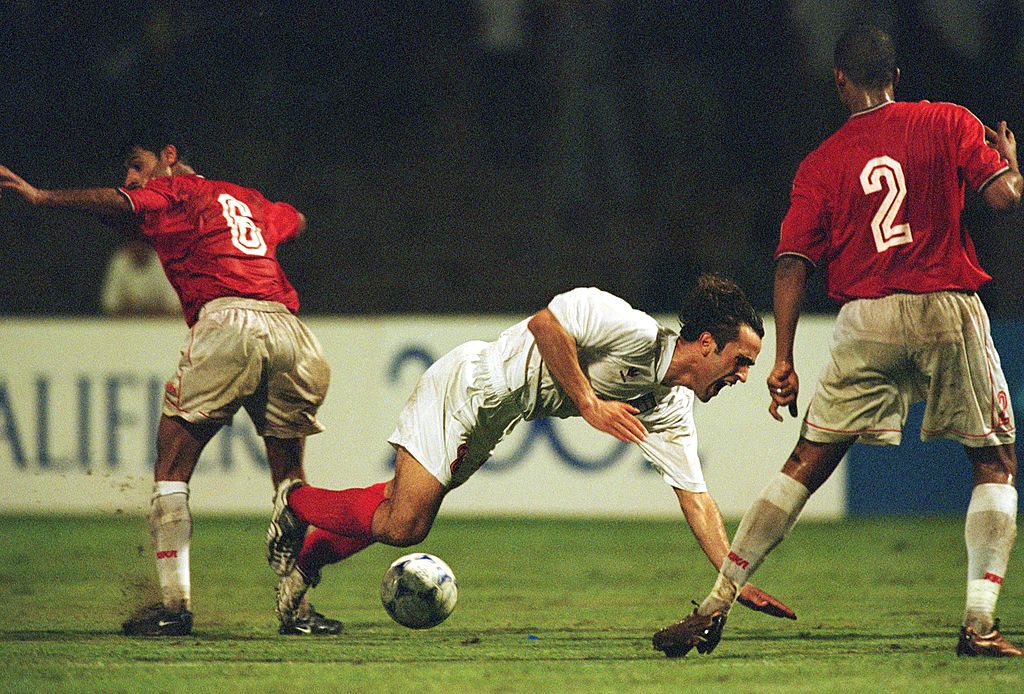
Needing victory against a mediocre Bahrain side to secure an automatic qualifying spot for the 2002 World Cup, a lethargic Iran barely mustered a shot as they slumped to a shock 1-0 defeat. Consigned to a play-off match against the Republic of Ireland, Iran battled hard but went out. Two days later, a storm broke after investigative journalists alleged that the team had been ordered to “take it easy” against Bahrain – by their own hard-line Islamic government.
A section of a supposedly “off the record” conversation between a journalist and a government minister (the transcript was discovered under a cinema seat) said: “The government of Iran believes it undesirable for large numbers of youths to congregate on the streets of Tehran. This occurred during the last soccer World Cup after Iran triumphed against the USA. There were some regrettable instances of drunkenness.” Unsurprisingly, the government denied all knowledge of any involvement.
Anderlecht bribe UEFA Cup semi-final referee
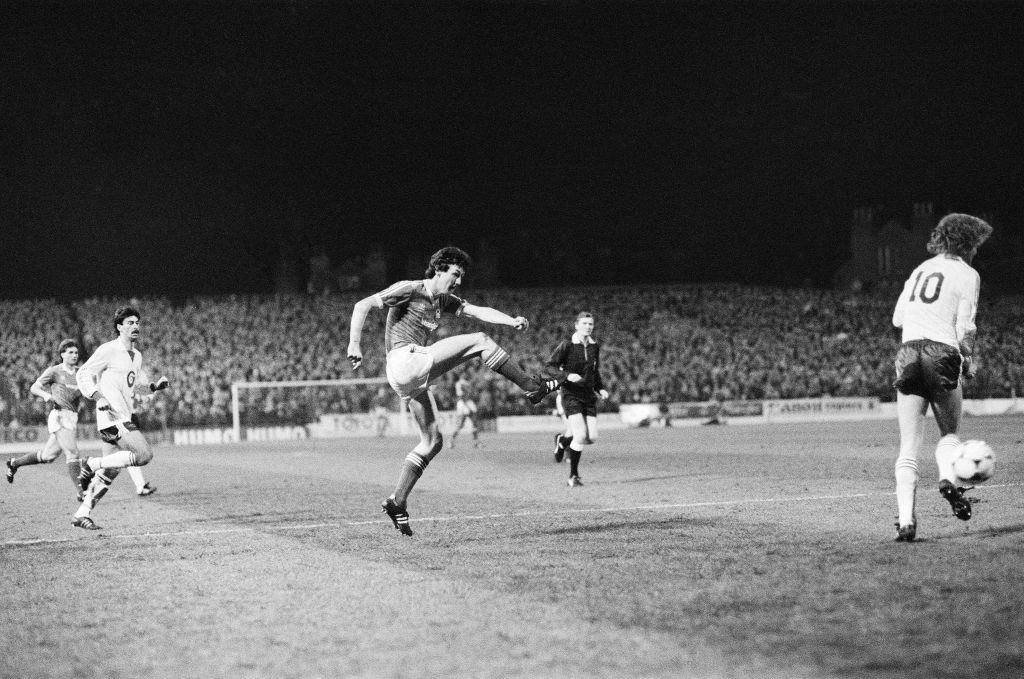
Brian Clough didn’t have much luck when it came to refs in Europe. Though the half-time chat when he was with Derby in 1973 (see earlier entry) could conceivably be explained away as mere coincidence, there would eventually be no doubting the skulduggery when Anderlecht knocked Clough’s Nottingham Forest out of the 1983/84 UEFA Cup.
Belgian officials were seen scurrying in and out of referee Emilio Guruceta’s dressing room before the second leg of the last-four tie, Forest 2-0 up from the City Ground. The Spanish official – already noted for Real Madrid bias back home – presided over a 3-0 Anderlecht victory which included a dodgy penalty and one ruled-out Forest goal.
Guruceta took a six-month break from football after the tie, amid rumours of receiving a £20,000 “loan” from Anderlecht. He died in a car accident in February 1987, and his name was posthumously attached to Spanish paper Marca’s best referee of the season.
Ten years after Guruceta’s death, UEFA suspended the Belgian giants for a season after evidence of the bribe was finally found. Not that Forest fans thought the punishment fitted the crime, of course.
The Nazis killed Matthias Sindelar
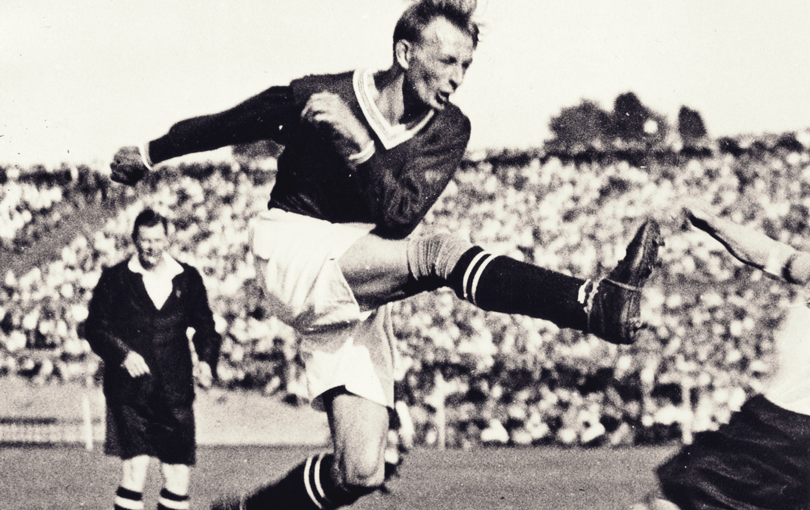
Ever since Austrian playmaker Matthias Sindelar’s brace humiliated Nazi Germany in a 1938 ‘friendly’ to ease integration after the annexation of Austria, the so-called Mozart of Football’s card was marked.
Within a year, the 35-year-old was dead. Depending on who you believe, Sindelar and his girlfriend Camilla Castagnola committed suicide, were the unfortunate victims of a faulty chimney or were murdered by the Gestapo for their pro-Jewish beliefs and the waspish star’s refusal to toe the Nazi line. Lifelong friend Egon Ulbrich revealed a local official had been bribed to record Sindelar’s death as an accident so he could receive a state funeral, illegal in Nazism for murders or suicides. However, it’s unlikely the whole truth will ever come out.
Goalie chucks one in for Wales
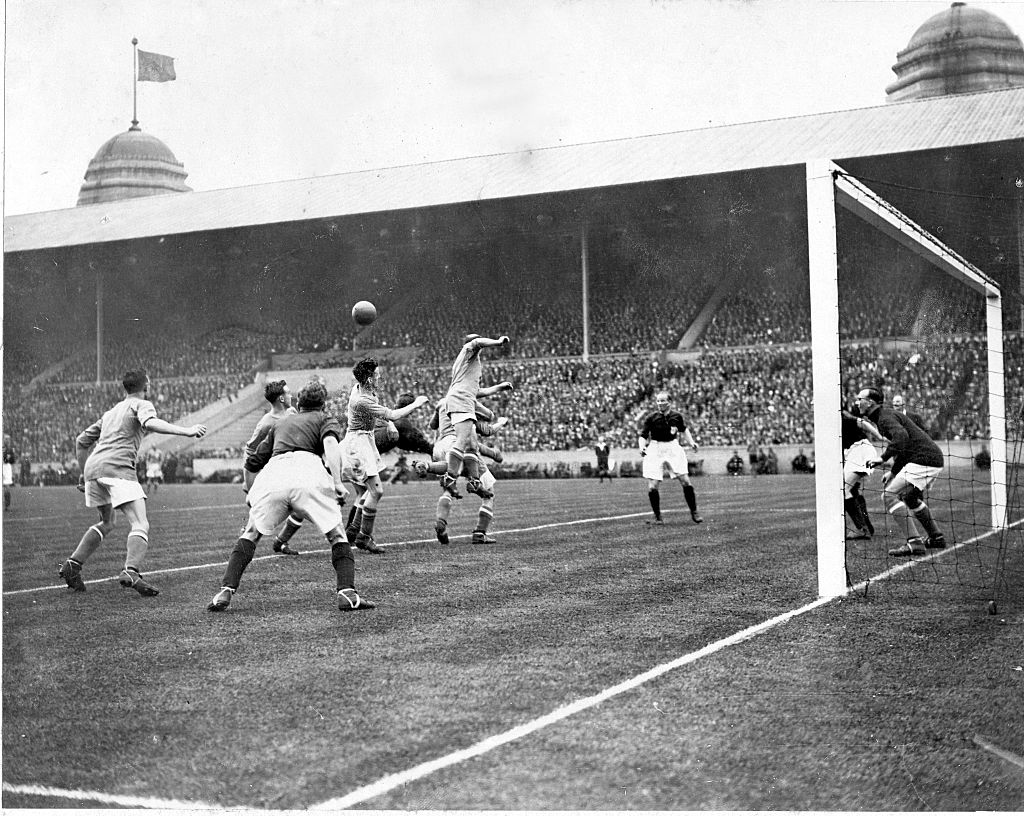
It’s one thing that Dan Lewis is remembered for making one of the biggest balls-ups in FA Cup final history; it’s quite another that some say he did it on purpose. The Arsenal goalkeeper, a proud Welshman who had made his international debut just two months earlier, watched agonisingly as the ball squirmed under his arm for the only goal of the 1927 showpiece to allow Cardiff City to take the trophy across the Severn Bridge for the only time in the competition’s history.
“I remember sitting in a pub with him towards the end of his life and he told me the sheen on his jersey made the ball slip out,” said his son, Dave, in 2002, describing the claims by some angry Gooners that he’d “thrown” the game in an act of patriotism as “ludicrous”.
Cantona signed to sell shirts. Joel Cantona, that is...
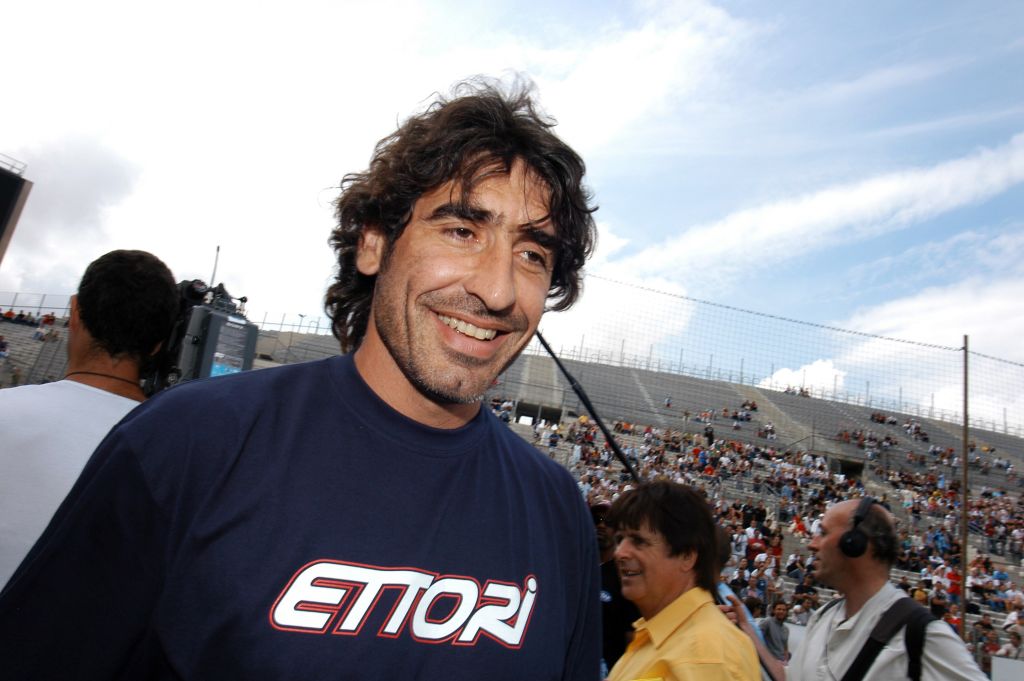
Having spent most of his footballing career underachieving at an assortment of French clubs, defender Joel Cantona – younger sibling of Manchester United’s ‘King Eric’ – proceeded to rock up at both Stockport County and Peterborough for trials in 1993, while his more famous sibling strutted his stuff at Old Trafford.
Sadly, Joel failed to make his mark in England either. Peterborough supporters suggested he’d been bought so that their commercial department could shift a few club shirts with ‘Cantona’ emblazoned on the back. Unfortunately for Posh, no sooner had the shirts been made up than Joel headed back across the Channel, without making a single first-team appearance. C’est la vie.
Spurs ‘Lasagne-gate’ down to Gooner chef
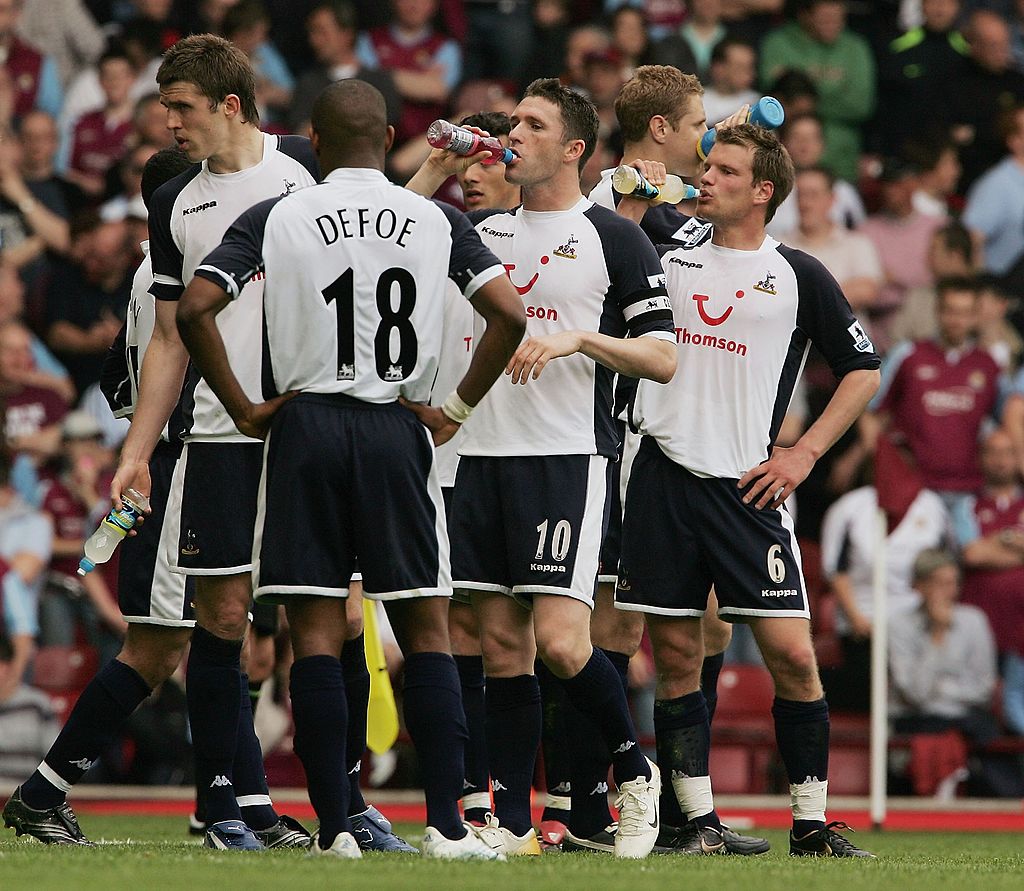
The Marriott Hotel in Canary Wharf once claimed to “satisfy the most discerning palates with its fresh approach”. Then, the night before the final day of the 2005/06 season, sickness tore through the Tottenham squad like a tsunami, effectively costing Martin Jol’s team a place in the Champions League at the expense of Arsenal and setting tongues wagging across the north London divide.
Although the hotel was cleared of any wrongdoing, it didn’t stop mischief-makers suggesting an Arsenal-loving chef had tampered with the lasagne that floored 10 of the Spurs squad, one even claiming Arsene Wenger himself was behind the flawed Italian favourite. Whatever next?
Ref denies Revie’s Leeds in 1973
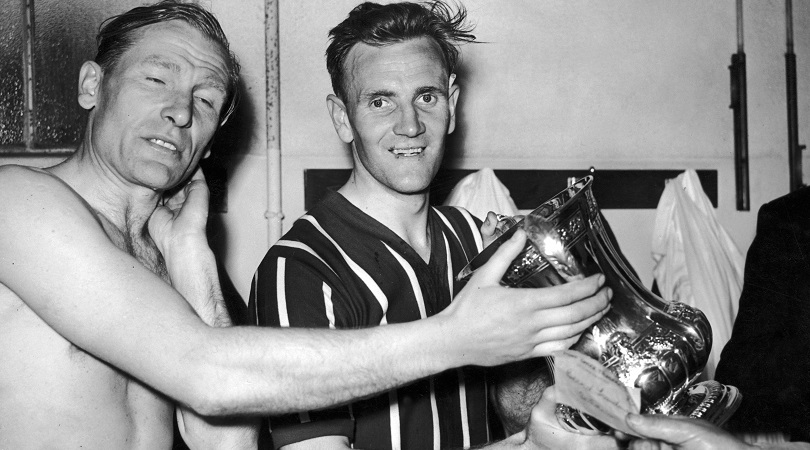
“Johnny Giles, who wasn’t playing that night due to injury, told us at lunch time the word was we couldn’t win, no matter how well we played.” The words of Leeds legend Peter Lorimer. And looking at the footage of the 1973 European Cup Winners’ Cup Final, it’s hard to disagree.
Milan’s fifth-minute winner was scored directly from an indirect free-kick, Don Revie’s men had several stonewall penalty appeals turned down and Norman Hunter was harshly sent off, amid accusations referee Christos Michas had been bribed. The Greek crowd in Thessaloniki booed as Milan tried to complete a lap of honour, Leeds tried to get the match replayed and Michas was later banned for life by UEFA for unrelated match-fixing. There have even been attempts to get the result reversed, one as recently as 2009, led by Yorkshire MEP Richard Corbett. Make up your own minds…
Blades striker sold to make a stand
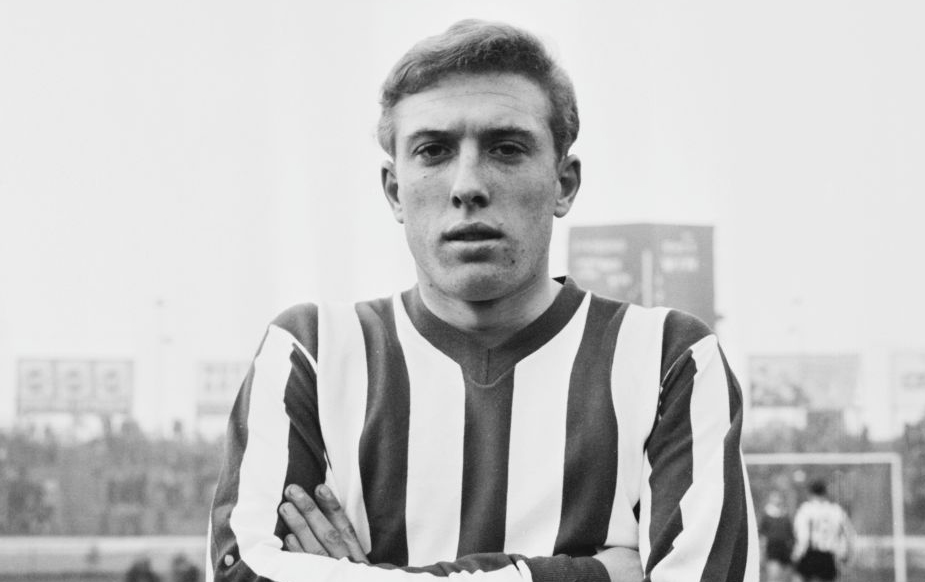
“It seemed that everyone apart from me knew I was on my way to Leeds,” shrugged former Sheffield United striker Mick Jones. In March 1967 the Bramall Lane outfit flogged their star striker, who’d bagged 63 goals in just 149 games for the club, to their arch-rivals. It didn’t go down well with supporters or manager John Harris, who declared: “It will be the biggest mistake this club has ever made.”
For years, rumours persisted that Jones was sold so the club could afford to square off their freakish three-sided ground, which they shared with Yorkshire County Cricket Club. The board strenuously denied the charge, but just two years after Jones’s sale, the Blades announced that Bramall Lane would be used for football only and that a new stand would be built. That was of no consolation to United supporters who saw their team relegated in the late ’60s, as Mick Jones’s Leeds swept all before them.
Neymar wasn’t really injured at the World Cup
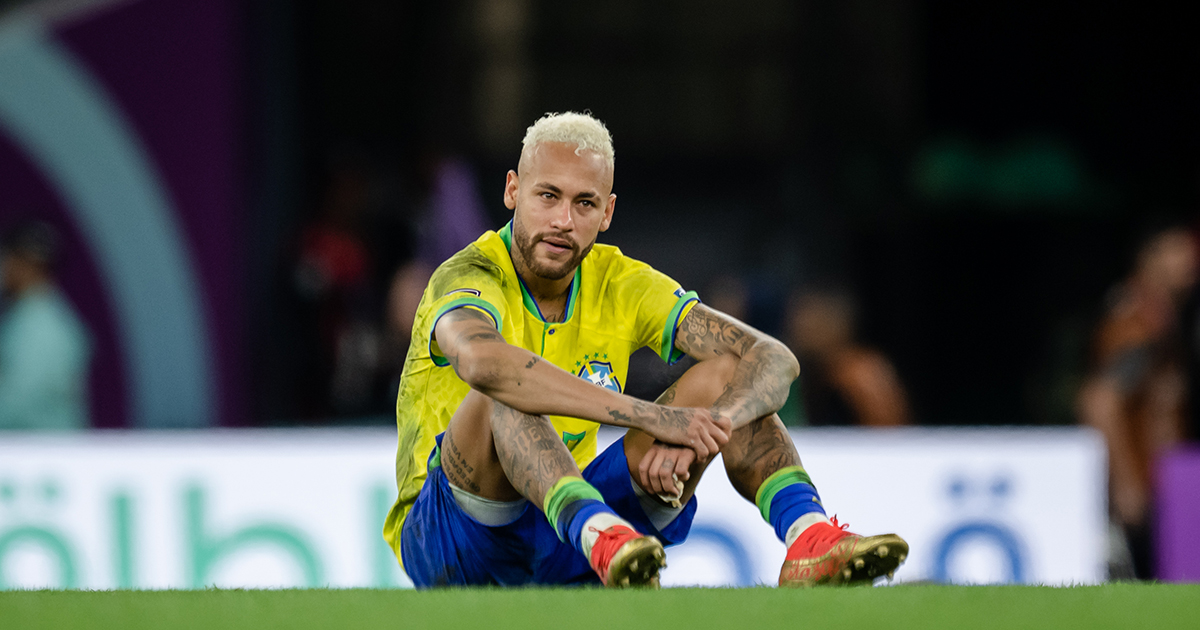
Right, before we go on, let FFT make it clear that we know what follows is pretty much the football equivalent of the fake moon landing, Area 51 and the assassination of JFK rolled into one: misplaced paranoia doesn’t get bigger than this. But here goes…
Neymar didn’t injure his back in 2014’s World Cup quarter-final, and he would’ve been fit for the final, if eventual champions Germany hadn’t owned Brazil 7-1 in the last four. So said keyboard warriors with nothing better to do.
The Illuminati who came up with this theory had ‘evidence’ too. As the Brazilian was stretchered into hospital following a knee to his back from Colombia’s Juan Zuniga, Neymar covered his face with a cloth (“It might not be him!”), photos of him were missing a prominent tattoo (“No Photoshopping here!!”) and his medical notes were destroyed to protect his ‘privacy’ (“OMG, IT’S DEFFO A FAKE NEYMAR!!!”). We knew that natty corset-like back protector he was rocking on holiday was just a fashion accessory.
Wenger signs Bergkamp from Japan
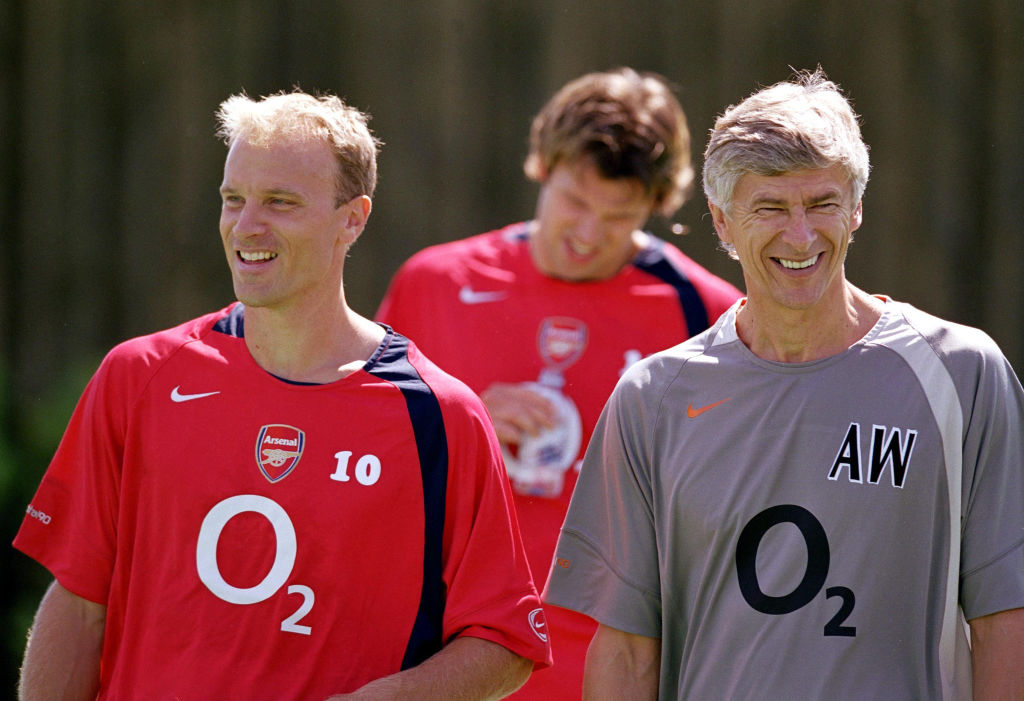
Unveiled as an Arsenal player in May 1995, Dennis Bergkamp was the signing who helped Arsenal shed the “boring” image and morph into something easier on the eye.
New Gunners manager Bruce Rioch claimed: “As my first signing, I hope that Dennis’s arrival shows all supporters that Arsenal are planning an ambitious future for themselves.” That’s assuming, of course, that Rioch actually had any involvement in Bergkamp’s arrival whatsoever.
It’s emerged in recent years that none other than Arsene Wenger, then Grampus Eight manager, advised Gunners vice-chairman David Dein to bring the Dutchman to Highbury. So does that mean Wenger was already de facto Arsenal boss before he officially took the reins a year later? Quite possibly. Rioch himself admits: “Arsenal had been chasing Arsene for some time – for me, it was only a matter of time.” One of Rioch’s former players said as much: “Bruce was like a supply teacher, with the class waiting for the proper teacher to arrive.”
Refs conspire against British sides
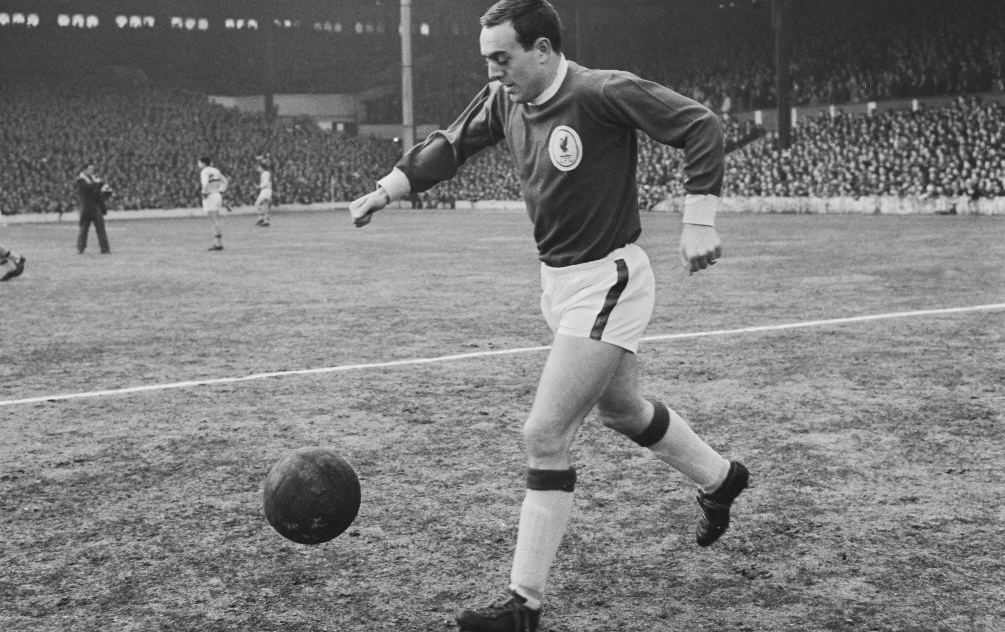
In the 1960s, legendary football writer Brian Glanville had often alluded to the “golden fix” – the “arrangement” which leading big-city clubs in Italy had with match officials to ensure their teams prospered in both Serie A and European competition. In 1965, with Liverpool leading 3-1 from the first leg at Anfield, Bill Shankly’s side were beaten 3-0 by Inter in front of over 90,000 at the San Siro, prompting one Liverpool director to claim: “They are never going to let a British team win the European Cup.”
Ian St John had what appeared to be a legitimate goal chalked off, while the Spanish referee allowed two suspect Inter strikes to stand. Suspicious, maybe – but perhaps a case of nerves getting the better of Liverpool? Two years later, Celtic proved that a British side could win the European Cup, defeating Inter into the bargain.
Messina funded by The Mob
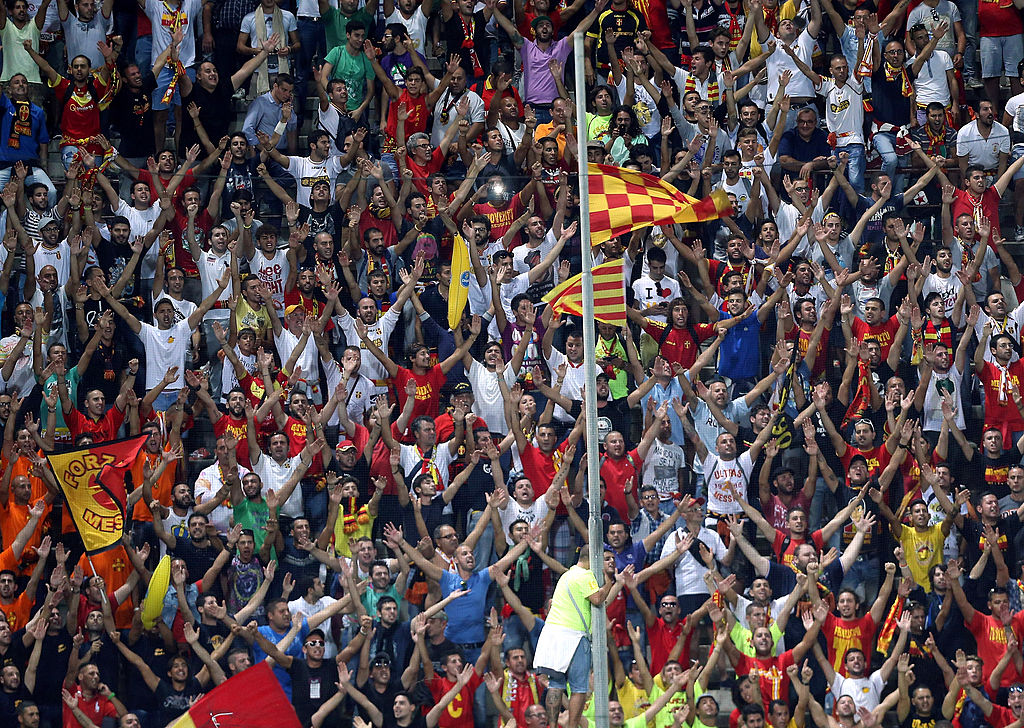
After bankruptcy in the early 1990s, Sicilian club Messina were bought out by local construction magnate Pietro Franza in 1997. His team enjoyed a staggering five promotions in eight seasons, and in 2004 they won their golden ticket to Serie A.
Fans of their deadly Sicilian rivals Palermo immediately besieged local radio stations, claiming Franza had bribed referees with mafia assistance. Franza refuted such suggestions after Palermo fan activist and local journalist Giancarlo Russo claimed to have discovered a dossier linking him with Cosa Nostra heavies.
After a police investigation, the whole thing was discovered to be a hoax. Inadvertently, Franza himself had actually been a victim of mob meddling. Messina moved into their gleaming new San Filippo stadium, with its capacity approaching a whopping 38,000, no less than 14 years late. Originally designed to be ready for the 1990 World Cup, money earmarked for the new stadium had disappeared, almost certainly into mob hands, and Messina couldn’t move in until 2004.
Death threats do for Dynamoes
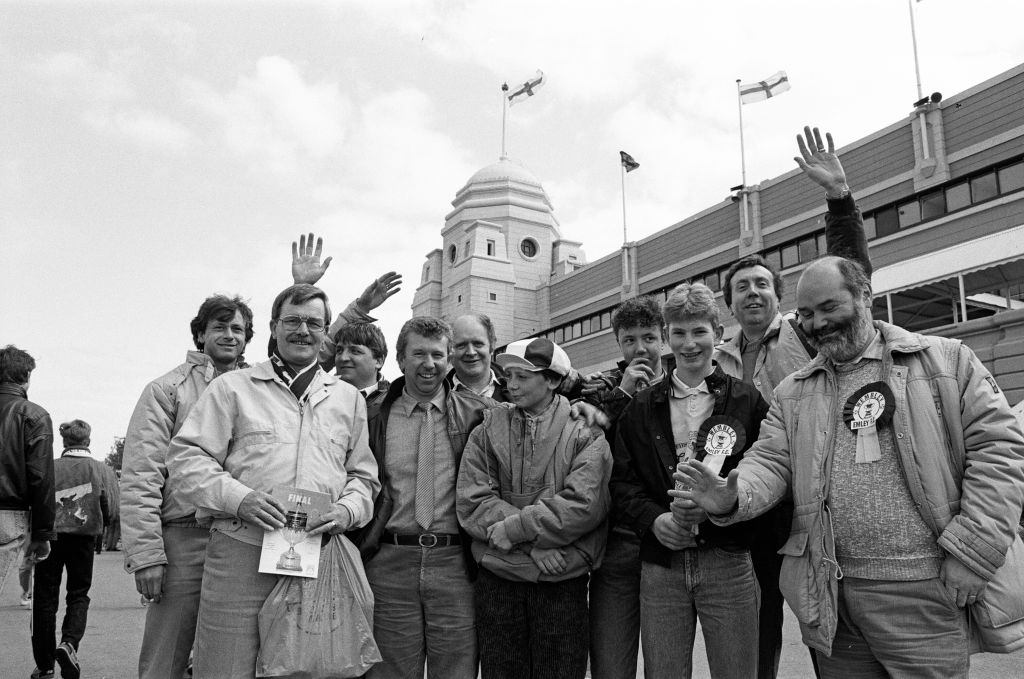
Bankrolled by local construction magnate Graham White, Lancashire side Colne Dynamoes were within touching distance of League status after romping to the Northern Premier League Championship in 1990, but they were denied entry to the Vauxhall Conference because redevelopments to their antiquated Holt House Stadium were not implemented in time to meet Conference standards.
In June 1990, White shut down the Dynamoes. Dark rumours persist about why. Allegations suggested that jealous local rivals had sent White death threats; others claimed that financially, the club was rotten to the core, and the Football League was about to rumble them. But only Graham White knows what really happened, and he’s remained silent on the subject for over 25 years.
Argentina spike Brazil’s drinks
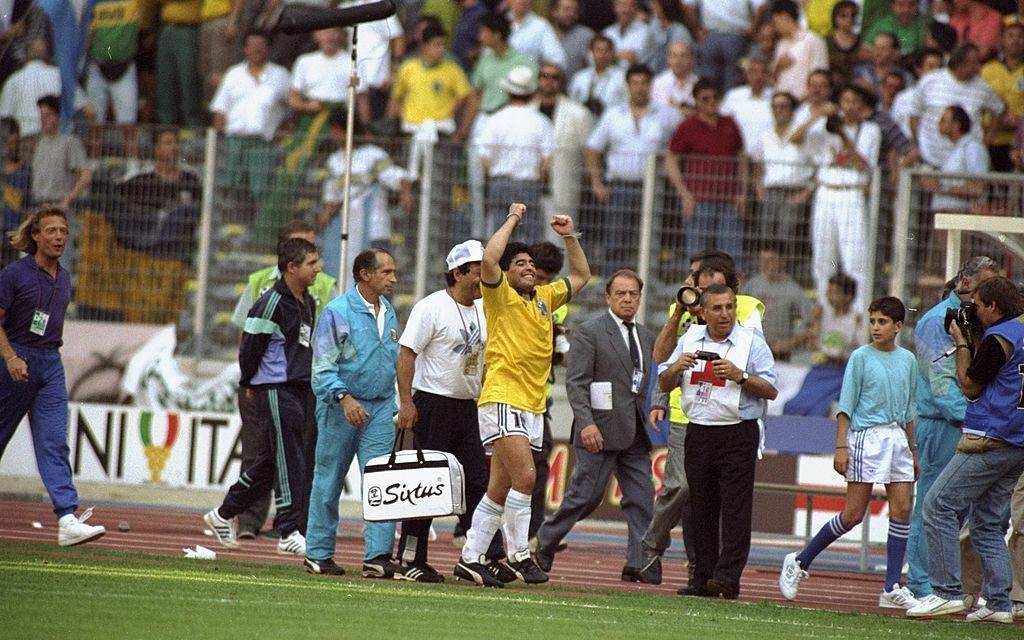
A World Cup last 16 game between South America’s bitterest rivals is always going to be laced with hatred, passion and no little flair – but tranquilisers? That’s another thing entirely.
But that’s what Seleção left-back Branco is convinced happened after Argentina physio Miguel Di Lorenzo, while attending to a stricken Albiceleste player early in the second half, gave him a water bottle. Two days later, Branco complained of feeling dizzy and sick after drinking from what he believed to be tranquiliser-laced water intended just for him.
Initially, the Argentines denied it, but in 2005 Diego Maradona implied the story’s truth in a TV interview. “Look, I’m not saying it didn’t happen,” sighed coach Carlos Bilardo – famed for his win-at-all-costs philosophy – soon after, his face contorting as if trying not to smile. Football finally had its own Watergate.
United want their Bebe back
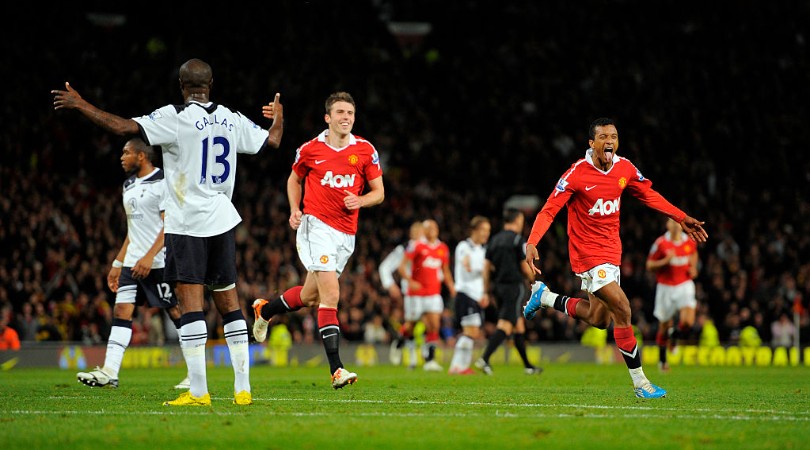
Bebe has to go down as one of the most memorable Manchester United signings of the 21st century – just not for the right reasons: more ‘wonderwhy’ than wonderkid, the winger made just seven appearances for the Red Devils, who he joined from Vitoria de Guimaraes in 2010.
Baffling as his arrival at Old Trafford was, though Man United did sign him for the right reasons, didn’t they? Well, its been suggested that they didn’t… A rather convoluted theory suggested the £7.4m deal was a favour to his agent, Jorge Mendes, who supposedly wanted to reward another client of his – then United assistant Carlos Queiroz – for allegedly helping another client – Nani – escape a drug ban. It's all very accusatory without concrete evidence – but that's a conspiracy, right?
Neymar's family affair
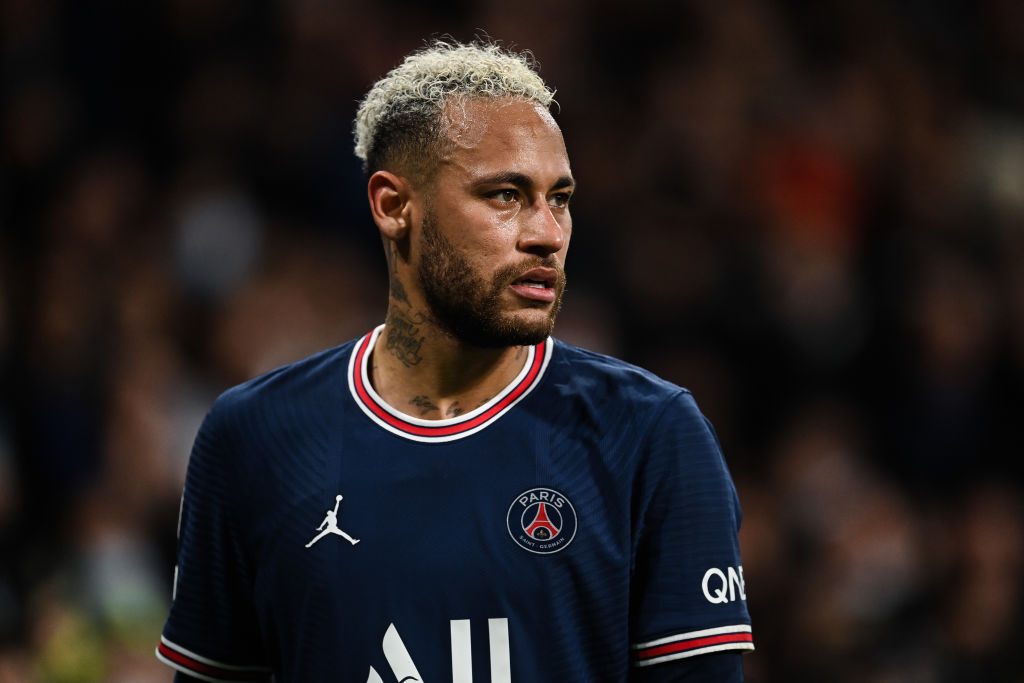
Unfortunately for Neymar, his career has been blighted by injuries – but it especially seems to befall him around 11 March, the date of his sister’s birthday.
Since 2015, the Brazilian superstar has missed a game close to that date due to injury on five occasions – and through suspension twice. Is he somehow doing it deliberately to be able to celebrate with his sister? Let’s be honest, probably not – but it’s a curious case, isn’t it?
The 2002 South Korea trajectory
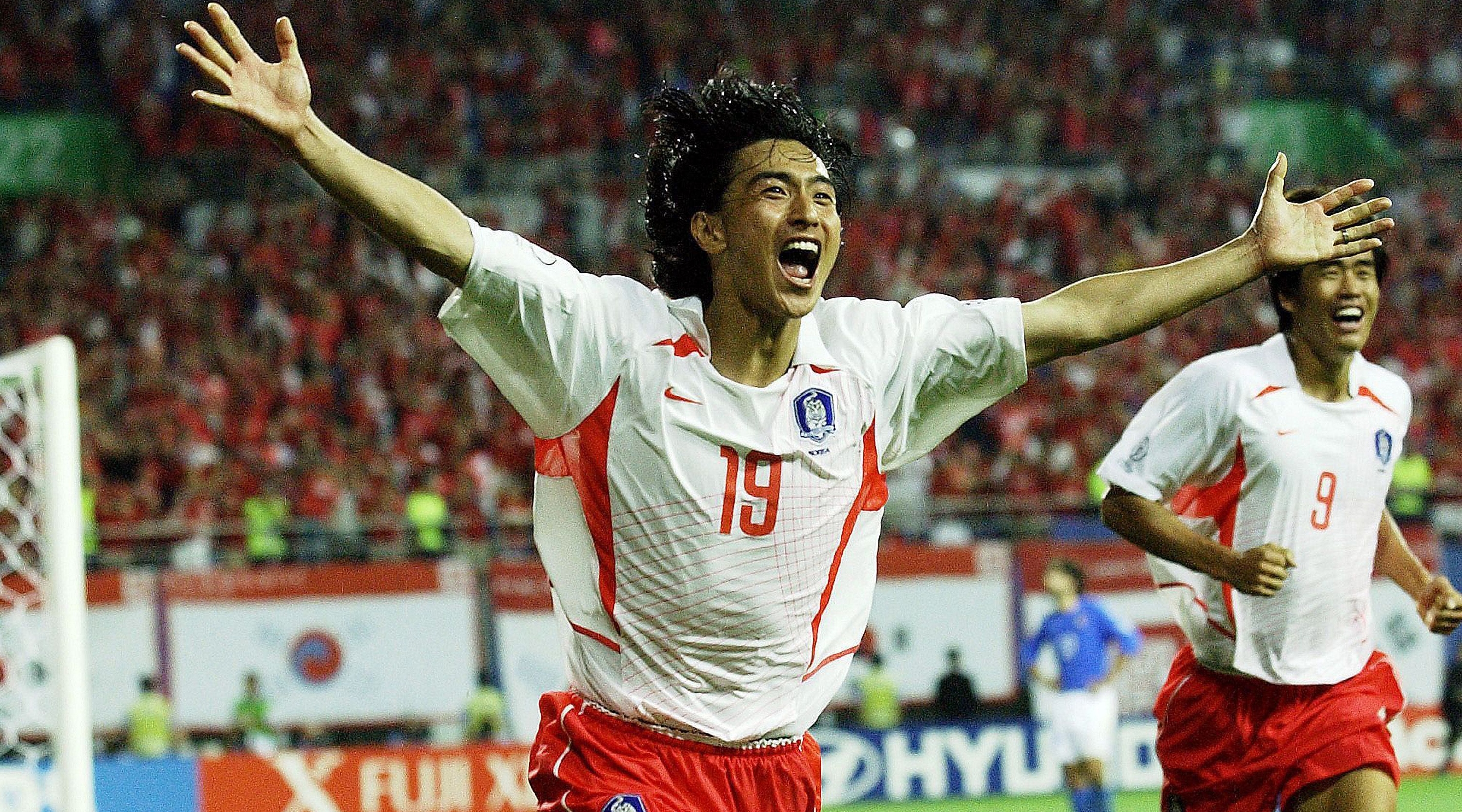
South Korea stunned the football world by making it all the way to the semi-finals of the 2002 World Cup – which they co-hosted with Japan – but was the Asian nation’s fairytale run what it seemed?
During their quarter-final win over Spain, South Korea benefitted from their opponents having two goals disallowed in highly dubious circumstances – having reached that stage with the help of some controversial refereeing decision in their favour during the last-16 clash with Italy.
The FIFA president at the time, Sep Blatter – who loved a bit of controversy – even admitted that the officiating had been “the only negative aspect” of the World Cup. If anything should have set alarm bells ringing…
FIFA gifted Messi the World Cup
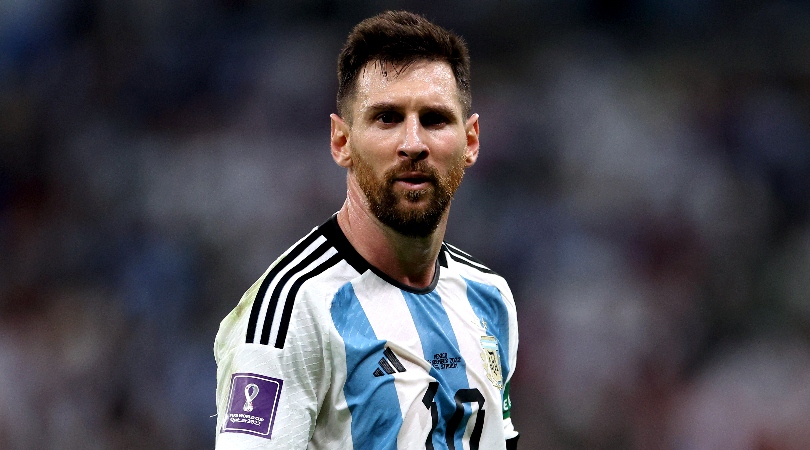
The 2022 World Cup was one of the most controversial of all time, mainly due to human rights concerns surround host nation Qatar – but could the tournament have been fixed?!
Louis van Gaal borderline suggested as much after his Dutch side were knocked out in the quarter-finals by eventual winners Argentina – an extremely feisty encounter which produced a World Cup-record 18 bookings, and a red card.
Seemingly implying that FIFA wanted Lionel Messi to become a world champion, Van Gaal said: “When you see how Argentina gets the goals and how we [the Netherlands] get the goals, and how some Argentina players overstepped the mark and were not punished, then I think it’s all a premeditated game.
“I mean everything I say. That Messi should become world champion? I think so, yes.”
UEFA fix their own draws
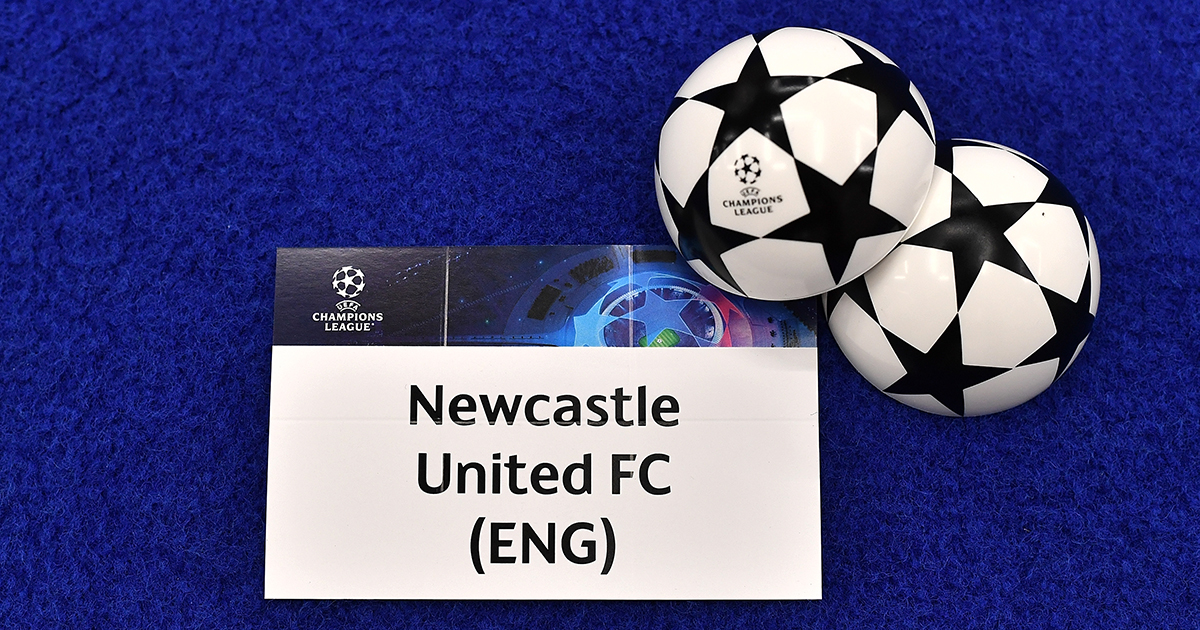
In 2016, Sepp Blatter (yep, him again) gave credence to conspiracy theorists who had suggested teams could be intentionally drawn together – or kept apart – through wild means such as heating or cooling the balls in a pot.
“Of course, you can put a signal in the balls, warming them or cooling them,” the by then disgraced ex-FIFA President said rather brazenly (although when pushed, he insisted that had never actually happened…).
Greg Lea is a freelance football journalist who's filled in wherever FourFourTwo needs him since 2014. He became a Crystal Palace fan after watching a 1-0 loss to Port Vale in 1998, and once got on the scoresheet in a primary school game against Wilfried Zaha's Whitehorse Manor (an own goal in an 8-0 defeat).
- Mark WhiteContent Editor
- Tom Hancock

